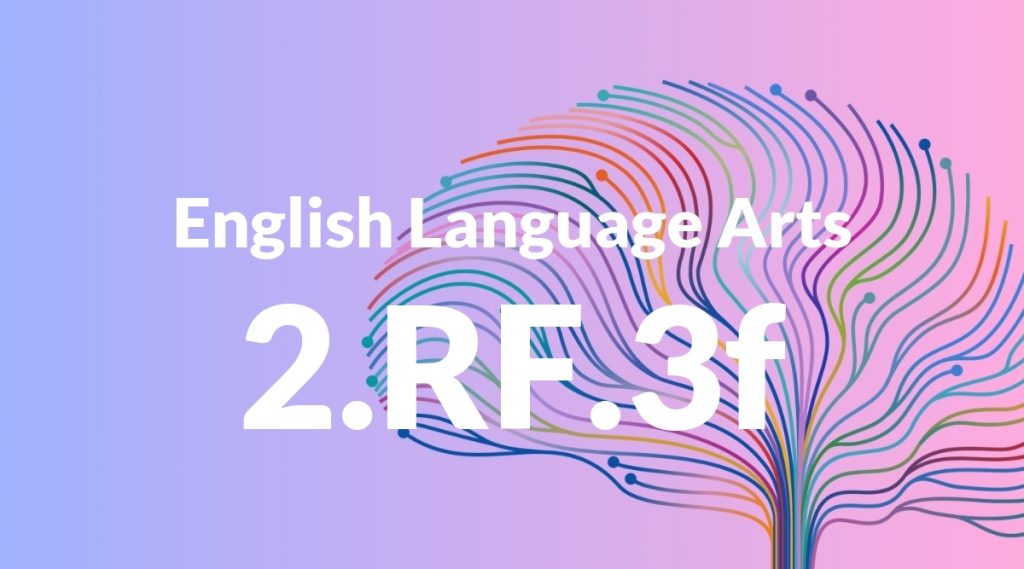Standard: 2.RF.3f – Recognize and read grade-appropriate irregularly spelled words.
Grade level: Grade 2
Subject: English Language Arts
Domain: Reading: Foundational Skills
Teacher Overview
This standard focuses on helping students recognize and read irregularly spelled words that do not follow standard phonetic patterns. Mastery of this skill is crucial for developing fluent reading abilities and understanding more complex texts. Students should have a solid grasp of basic phonics and the ability to decode simple words. They should also be familiar with common spelling patterns.
After mastering this standard, students will be able to read more complex texts fluently and accurately, enhancing their overall reading comprehension and vocabulary.
Common Misconception 1
Some students may believe that all words follow regular phonetic rules, leading to confusion when they encounter irregularly spelled words. This misconception can hinder their reading fluency.
Intervention 1
Use engaging activities such as word sorting games and reading practice with a variety of irregularly spelled words to help students recognize and remember these words.
Common Misconception 2
Another common misconception is that students can always sound out words to figure out their spelling. This belief can cause frustration when they encounter irregularly spelled words.
Intervention 2
Encourage students to recognize and memorize common irregularly spelled words through repetition, visual aids, and mnemonic devices.
Prerequisite Knowledge
Students should have a basic understanding of phonics, including the ability to decode simple words and recognize common spelling patterns.
Subsequent Knowledge
Students will develop the ability to read more complex texts fluently and accurately, and will improve their spelling and vocabulary skills.
Instructional Activities
- Word sorting games with regular and irregularly spelled words
- Reading practice with books containing high-frequency irregular words
- Flashcards with irregularly spelled words and their pronunciations
- Interactive word wall featuring irregularly spelled words
- Spelling bees focusing on irregularly spelled words




